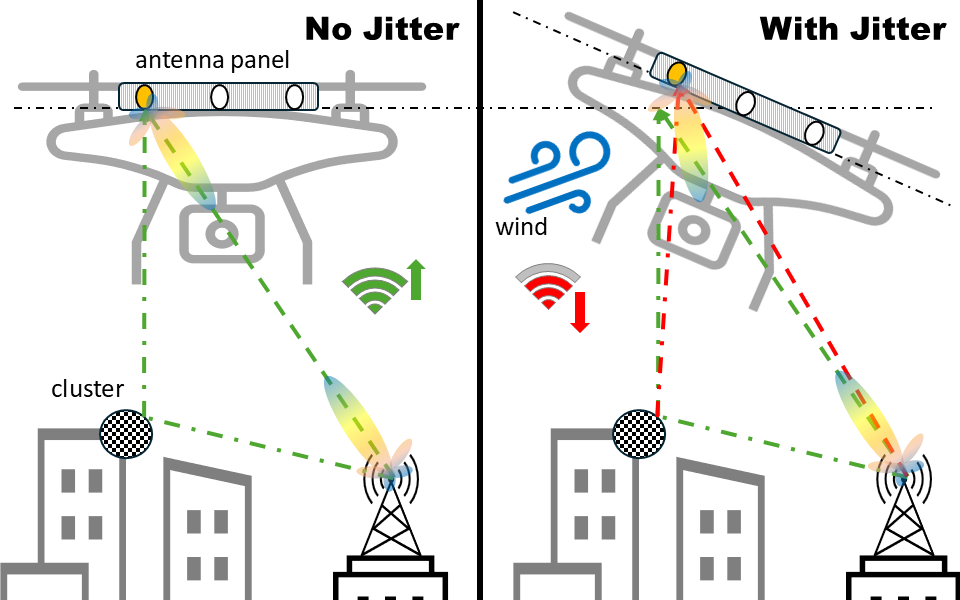Mitigating the Impact of UAV Fluctuations on Air-to-Ground Wireless Communications in the Presence of Channel Aging
DOI:
https://doi.org/10.14209/jcis.2024.15Keywords:
channel aging, channel prediction, extended Kalman filter, uncrewed aerial vehicle, jitteringAbstract
Recent works have pointed out that uncrewed aerial vehicle (UAV) platform fluctuations due to jittering, wobbling and shaking degrade the performance of air-to-ground wireless systems. Similarly, recent works have shown that the air-to-ground wireless channel suffers from the effect of channel aging due to the high mobility of UAVs. Delays inherent to the network, high Doppler frequencies and hardware impairments accentuate this effect, as well as fluctuations in the UAV platform. Unfortunately, the literature still lacks appropriate channel models that take into account the influence of UAV fluctuations on the channel aging autocorrelation function, which is an essential requirement for channel prediction-based mitigation solutions. Therefore, in this paper, we develop autocorrelation functions that are appropriate for evaluating and mitigating the impact of UAV fluctuations on the performance of the air-to-ground channels. We demonstrate that the UAV fluctuations affect the time autocorrelation function of the channel, and consequently the coherence time, exacerbating the effects of channel aging. Furthermore, this effect is accentuated with an increasing distance between the antennas and the centroid of the UAV, and with increasing the carrier frequency. We propose a channel predictor based on an extended Kalman filter and develop autocorrelation functions to mitigate the impact of channel aging with UAV fluctuations on the spectral efficiency (SE). Then, we observe that considering statistical models of UAV fluctuations in the channel predictor design can improve SE.
Downloads

Downloads
Published
How to Cite
Issue
Section
License
Copyright (c) 2024 Antonio Regilane Lima Paiva, Walter C. Freitas Jr., Yuri C. B. Silva, Roberto P. Antonioli, Gabor Fodor (Author)

This work is licensed under a Creative Commons Attribution-NonCommercial 4.0 International License.
Authors who publish in this journal agree to the following terms:
- Authors retain copyright and grant the journal right of first publication with the work simultaneously licensed under a CC BY-NC 4.0 (Attribution-NonCommercial 4.0 International) that allows others to share the work with an acknowledgment of the work's authorship and initial publication in this journal.
- Authors can enter into separate, additional contractual arrangements for the non-exclusive distribution of the journal's published version of the work (e.g., post it to an institutional repository or publish it in a book), with an acknowledgment of its initial publication in this journal.
- Authors are permitted and encouraged to post their work online (e.g., in institutional repositories or on their website) before and during the submission process, as it can lead to productive exchanges, as well as earlier and greater citation of published work (See The Effect of Open Access).
___________
Accepted 2024-09-17
Published 2024-09-26


